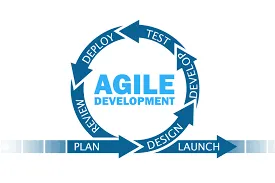6 Min Read

How African Businesses Are Embracing Fintech to Drive Digital Transformation
From mobile wallets to embedded finance, innovative financial technology is reshaping the continent's economic landscape, offering SMEs a gateway to growth and efficiency.

Titus Mwangi
From mobile wallets to embedded finance, innovative financial technology is reshaping the continent's economic landscape, offering SMEs a gateway to growth and efficiency.
Africa’s digital revolution isn’t coming—it’s already here. With over 650 million mobile subscribers across the continent, the infrastructure is in place. What’s remarkable is the speed of adoption. In Kenya, 91% of SMEs have already embraced digital payment solutions, with 97% planning to offer seamless digital payments in the near future.
Ethiopia’s story is equally compelling. Following regulatory reforms in 2023, mobile money accounts exploded from 15 million to 90 million—a sixfold increase in just over a year. When policy meets innovation, African markets don’t just adapt—they sprint.
Breaking Down the Barriers
The challenge has always been clear: less than 10% of SMEs have access to formal credit. But this funding gap has sparked innovation rather than defeat. Digital lending platforms now use alternative data to assess businesses once deemed ‘unbankable’. Payment platforms like Paystack and Flutterwave are simplifying cross-border trade, making regional commerce effortless.
The economics are transformative. Fintech solutions can be up to 80% cheaper, with remittance costs slashed by up to six times, according to McKinsey. For businesses on thin margins, these savings aren’t just helpful—they’re game-changing.
The Numbers Tell the Story
Africa’s financial services market is projected to hit $230 billion by 2025, growing at 10% annually. The momentum is real: early-stage fintech funding reached $1 billion in the first half of 2025 alone—a 40% jump from the previous year.
Banking-as-a-Service and embedded finance APIs are democratizing access to sophisticated financial tools. Traditional banks are responding too, with heavy investments in digital transformation focused on SME solutions. Even regulatory frameworks—from Nigeria’s open banking to Ethiopia’s mobile money reforms—are evolving to support this growth.
A Continental Transformation
What we’re witnessing isn’t just technology adoption—it’s a fundamental shift in how business gets done. African SMEs are no longer constrained by geography, credit history, or prohibitively expensive services. They’re accessing tools that level the playing field and unlock continental markets.
The message is clear: African businesses aren’t just using fintech—they’re being transformed by it. And in the process, they’re building a more inclusive, efficient, and dynamic economic future for the entire continent.
Related
Similar Articles
Stay Informed with Our Latest Articles: Explore the most recent insights, trends, and updates from our industry experts. Dive into a wealth of knowledge to keep you ahead in the ever-evolving tech landscape.

Agile Development at Afriq Silicon
In the fast-paced world of software development, businesses need agile solutions that can adapt to changing requirements and deliver results quickly. ...

How to Backup and Restore a PostgreSQL Database Using Docker
PostgreSQL is a powerful, open-source relational database system that is widely used for its robustness and versatility. ...

SaaS Multi Tenant Approaches Using Keycloak
In today’s cloud-native applications, multitenancy is becoming increasingly essential, especially when you want to provide services to multiple SaaS application organizations....
